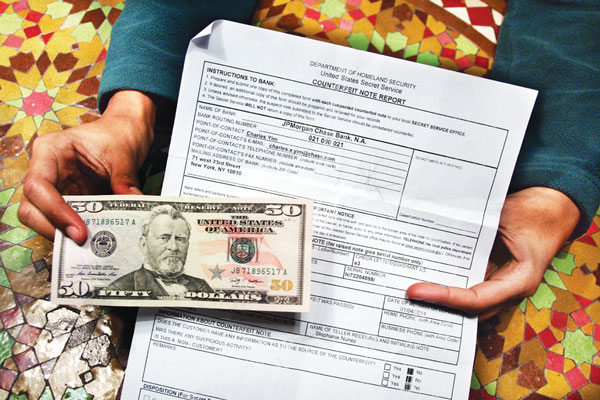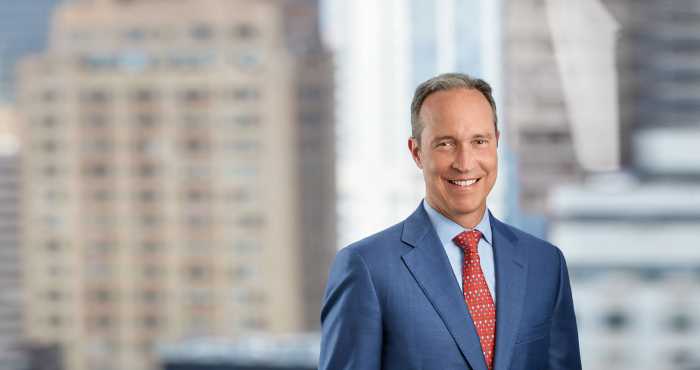
BY BOB KRASNER | It might be time to invest in those little pens that the delis use to check incoming dollars. On Fri., Jan. 3, Laurel Rubin went into the Chase bank at Broadway and 13th St. and made a withdrawal from the A.T.M. She then went to the teller and requested a $50 bill, having decided that her babysitter would enjoy getting paid with one.
The $50 bill — which Rubin normally doesn’t like to use because “nobody takes them” — was subsequently delivered that night to 15-year-old Ruthie, the babysitter.
The following day, Ruthie and her mother made a trip to another Chase bank, at 23rd St. and Sixth Ave., where the ninth grader attempted to deposit the bill in an A.T.M., only to have it rejected repeatedly. She then presented the 50 to the teller, who, after unsuccessfully attempting to put it through her own machine, eventually realized it was counterfeit.
The teller informed Ruthie she was taking the bill, and that was that. Her mother stepped in and wanted to discuss the situation, but she was handed government paperwork for the phony bill, and the bank was done with it.
Although one of the sections of the “Counterfeit Note Report” that Ruthie and her mother were given clearly asks, “Does the customer have any information as to the source of the counterfeit?” no attempt whatsoever was made to question the two as to the source of the bill. Yet, that section of the report had already clearly been marked “no,” as if the bank had questioned them about it.
Meanwhile, Rubin, upon being informed of the incident, was furious.
“When I go to the bank to withdraw money,” she explained, “I expect real money, not Monopoly money!”
Initial attempts to retrieve her money the following Monday morning and extract an apology for Ruthie were stonewalled. It was not until Rubin threatened to withdraw her funds from the bank that she received a credit. However, an apology is still awaited.
Calls by this reporter to the Chase branch where the phony 50 originated were met with confusion, long hold times and an “accidental” disconnection. Apparently, as it turned out, neither the manager nor the assistant manager were available that day.
Eventually, calls were referred to Melissa Shuffield, who is in charge of “media relations and community engagement.” After a week or so, she e-mailed the following note:
“We have strict policies in place to spot and turn away counterfeit bills; our branch teams are instructed to hold people in possession of these bills accountable. It would be impossible to investigate each and every counterfeit bill we find (whether by sight or with the machine) but we do our best to prevent the bills from coming into the bank in the first place.”
In other words: Sorry, but we just can’t handle checking all those darn bills. So maybe the money we’re handing out is real, maybe it’s not — who knows? We do our best, though. And as for holding those in possession of those bills accountable, well, maybe next time.


































